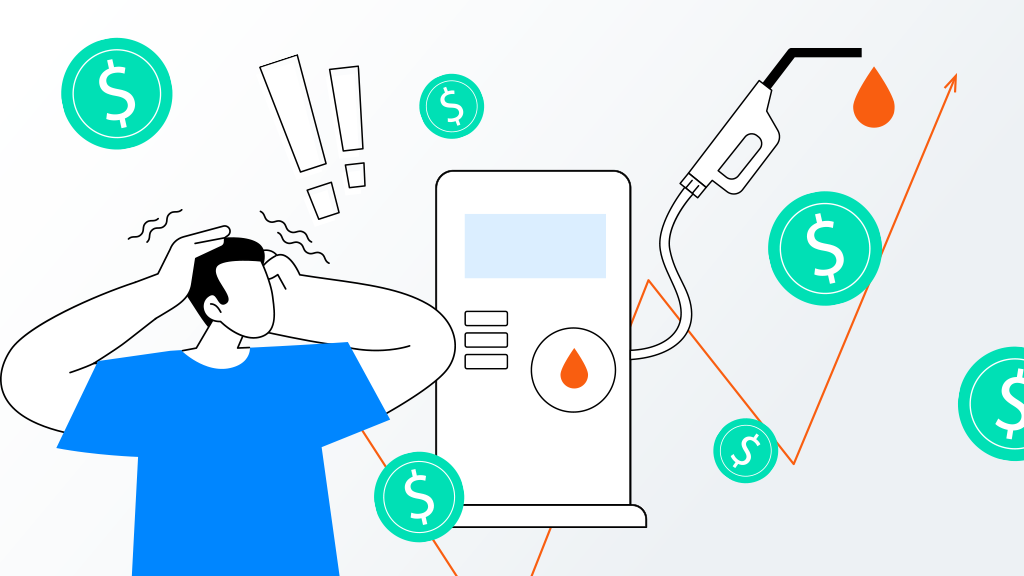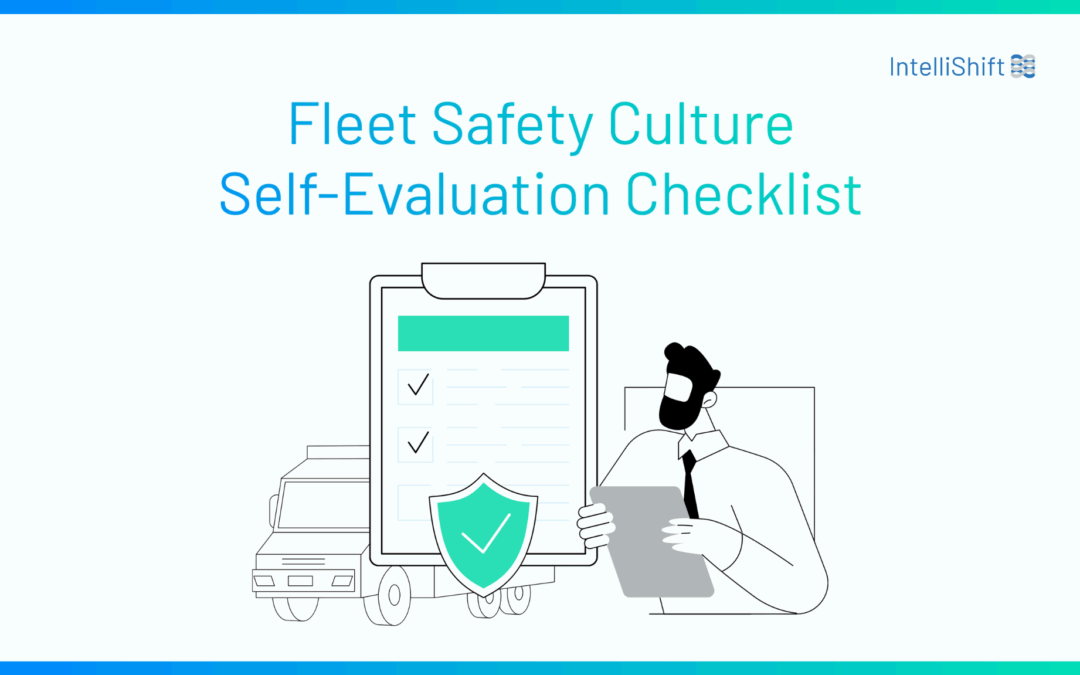What is GPS & How GPS Works
Almost all of us have used GPS in our daily lives, whether it be the navigation system on our smartphone or a system built into the car. Just as they have for the average consumer, GPS systems have become more and more critical to how industries around the world function over the last few decades.
Many companies, including businesses with a fleet of vehicles, have been using GPS for many years without stopping to consider how these systems work and the science behind them.
Maybe you are a fleet manager yourself and you are suddenly wondering, “What is GPS?” Keep reading to find out.
What is GPS?
The Global Positioning System, or GPS, is a global satellite navigation system that is used to pinpoint devices in location and time.
It was created by the U.S. Department of Defense as a way of keeping track of military assets. However, in the 1980s, the technology was made publicly available and other industries found they could greatly benefit from the technology.
Most people know that GPS is integrated into many of the mobile devices they use today including smartphones, tablets, and smartwatches, as well as in-vehicle devices as a way to help us navigate to various locations.
When it comes to traveling, whether this is done on land, water, or in the air, GPS can use the navigation satellites to find specific locations using a combination of signals and receivers. The data is gathered through the system and provided to users of the navigation system to either give directions or to show where a vehicle or person is.
It is important to keep in mind that while the entire system is made up of at least 24 satellites that are in various locations, the GPS devices we use daily typically only connect with about four at a time.
How GPS Works
To begin to understand how GPS works, it’s important to know the components that make up the system itself.
There are three parts that work together to create the ability to pinpoint locations:
- Space/GPS satellites – the various satellites that have been launched into space to orbit the Earth. These transmit information back to Earth and individual systems to relay location information.
- Control/Ground Control – Ground Control is responsible for managing, regulating, and overseeing the satellites’ orbits to ensure that their movement and timing are within acceptable levels. These ground control centers are located all over the world to provide a more accurate reading.
- User devices/GPS receivers – the devices used to send, receive, and sometimes display GPS tracking information about an individual such as smartphones, tablets, watches, and telematics devices.
The GPS system works through a mathematical concept called trilateration which can pinpoint the exact location of a specific target. This is used to identify location, speed, as well as various elevation points.
Since the satellites are designed to fully orbit the earth twice per day, there are constant GPS signals that are being sent to millions of devices around the world 24/7. Because of this, a GPS device is almost always able to read signals from at least four different satellites to get an accurate location reading anytime, anywhere.
While four is the target, GPS devices need to be able to receive a signal from at least three satellites to operate.
Read our in-depth article on how GPS works for more.
What is GPS used for?
GPS systems are used in a variety of industries around the world because of their reliability and the value of accurate location information.
Some of the most commonly used functions of satellite GPS systems:
- Geographic positioning
- Navigating from one place to another
- Measuring accurate time
- Tracking movement
- Developing maps around the world
More specific examples of what a GPS system can be used for:
- Gaming – in today’s world of advanced technology, more and more developers are creating games that use GPS to pinpoint a gamer’s exact location. Pokemon Go! Is a good example of a game that requires players to go from one location to another.
- First Responders/Crisis Response – GPS devices receiving signals from satellites helps reduce response times to various emergencies using advanced routing capabilities based on real-time data.
- Fleets – various telematics systems are used by carriers to increase efficiency and safety on the road. GPS systems used in trucks help companies assist drivers in finding optimal routes to help reduce fuel consumption and time to delivery – ultimately increasing fleet productivity.
- Wellness Industry – products such as FitBits, Smartwatches, and other mobile technologies are widely used in the wellness industry to allow users to track their progress towards movement goals and running or biking routes in real-time.
Who Uses GPS Professionally?
There are a wide variety of professionals in a variety of industries using GPS systems regularly in their work to either help navigate, track, or monitor the assets used for their businesses. The systems usually communicate from in-vehicle devices to home offices to give managers real-time information.
GPS devices are especially useful when it comes to businesses that have fleets of vehicles since it’s impossible to always be on the phone with all drivers all the time to stay up to date on their location history.Here are some fleet-based businesses which benefit from the use of asset tracking GPS systems:
- Trucking Companies
- Repair Companies (such as plumbers or HVAC repair)
- Food Delivery Companies
- Flower Delivery Companies
- Corporate Transportation Companies
- Security Companies
Besides fleet-based businesses, other industries that frequently use GPS include:
- First Responders
- Aircraft pilots
- Military personnel
- Farmers
- Scientists
- Fisherman
This list of professions that use GPS systems is in no way exhaustive as more and more industries find new and creative ways to incorporate location data in their regular operations.
Even ten years ago, it may have been hard to believe that farmers and those in the health and wellness fields would be using a GPS for their work. Now those industries use GPS daily!
Is GPS Accurate?
A GPS system, like other types of technology, works as well as the equipment that is controlling it. This is because if you have GPS systems that have higher precision receivers, you will be able to track your assets in the field more accurately.
Certain factors affect the accuracy of GPS more than others. In many of these cases, these factors are beyond your control such as how many satellites are currently available to send a signal to your devices.
Here are some of the most common factors that affect GPS accuracy include:
- Ionosphere interference – while GPS can work in many inclement weather situations, some storms can affect the electromagnetic state of the upper atmosphere and cause GPS signal disruptions.
- Obstructions – objects between satellites and GPS devices that block signals, including mountains and concrete flooring.
- Device malfunction – old or low-quality receiving devices can lose accuracy in more complex situations or experience outright hardware failures.
If you are a company looking to manage a fleet, be sure to find high-quality GPS receivers to ensure that the asset tracking is accurate.
Why Fleets Should Use GPS
Companies with fleets of vehicles, especially larger ones, typically have quite a few trucks and other assets to manage on a daily basis – which makes finding an issue with one of those assets after a problem has happened a potentially significant challenge.
That’s why companies with fleets should incorporate an asset tracking system into their daily operations. Using the right system can help you track your various trucks, equipment and drivers to keep an eye on your assets in real-time.
An important part of asset management is having a reliable GPS system in place with a reputation for reliability and accuracy. This will allow you to keep track of where your vehicles are at any given time and to know if they are being utilized efficiently.
When you are able to properly track your assets with GPS, you can be sure there isn’t any time being wasted by inattentive drivers or an inefficient route. Additionally, using a GPS system for asset tracking allows you to lengthen the life of your assets as you will be better able to schedule preventive maintenance before large issues present themselves.
While knowing that you need an asset tracking system that includes a GPS system, some fleet businesses still ask the question, “what is a GPS?” and “why should you use asset tracking?” The answer to both of these questions is found in our benefits of asset tracking article!

The Future of GPS
In addition to ever-increasing accuracy and resilience, the future will bring GPS technology to more and more industries as they test more creative applications of the system.
According to the US Government’s GPS website, the future of GPS lies in making more satellites and more signals available to aid in both civil and safety areas of life.
Since more accuracy and precision are on the horizon for GPS systems, businesses with fleets will be able to increase their productivity even more while also saving money on fuel consumption. GPS systems aren’t the only way they can save money.
When a company pairs GPS devices with advanced telematics and an AI-powered safety system that watches the road at all times, identifying problem drivers and poor operational practices becomes easier.
These devices can also help keep drivers safe, as they can see when a driver takes their eyes off the road and provide them with a real-time reminder. If an incident does occur, these devices also allow companies to look back into the past and identify exactly what happened to lead to it.
Companies like Intellishift are committed to providing equipment that ensures that your fleet is as profitable and fuel-efficient as possible, whether this means equipping your trucks with an AI Video safety system equipped with GPS or another telematics product.



![Episode 50 Thumbnail Erin celebrates building the fleet community with 50 episodes and 11K followers on LinkedIn [Podcast]](https://intellishift.com/wp-content/uploads/2022/05/iStock-1339097795.jpg)



